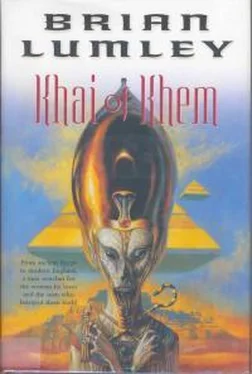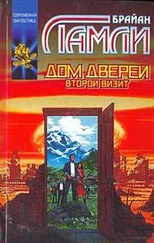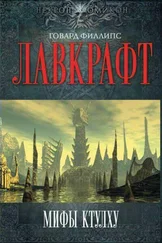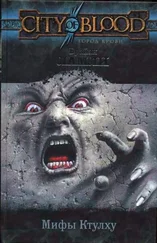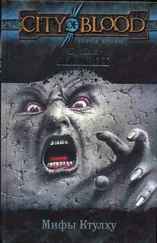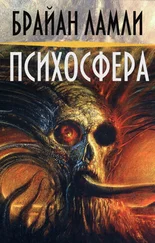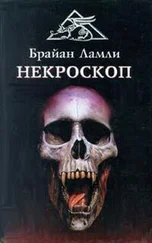“Waugh! Kill for Khai! . “Waugh! Kill for Khai the Killer!
“We are N’jakka’s strength. We are his mighty heart! “Khai is his white brother, and they are mighty above all men! “Waugh! Kill for N’jakka, in the name of Khai the Killer. In the name of Killer Khai!”
The wall of Khemites broke before them, broke and was trampled underfoot; and in through the gates poured the rest of the charioteers, the horsemen and warriors of Kush. By now the slaves of Asorbes were in uproar, arming themselves en-masse and turning on their overseers and guards, causing a hundred diversions in all quarters of the city. Many of them were starting fires, burning their old, verminous houses in the slave quarters; and others were climbing the stone stairways built into the walls, pouring onto the high ramparts and joining their brothers there, dealing with the Khemite archers wherever they found them.
All was a cataract of noise, a tumult of rushing, furiously brawling figures, of screaming, dying men and beasts. The streets were full of blood and crumpled figures, where bronze swords broke on iron swords and clubs rose and fell to the pounding rhythm of war-hammers. And through all of this Khai rode, his sword a scarlet wand which brought death in near-magical fashion to any Khemish soldier who strayed too close to his chariot; and close behind rode Kindu and Nundi, black and golden and red with blood as the sun rose over Asorbes.
With the majority of the action taking place in and around the gates, the center of the city was comparatively quiet. Breaking through the rear ranks of the defenders, Khai headed for the great ramp and followed the line of its base west toward the pyramid. He had not forgotten the dream-warning of the seven mages in Kush, and his priority now was to find the Dark Heptad and deal with them in short order. Racing parallel with his own chariot was that of his Nubian lieutenants, and a thousand of his most fierce horsemen rode behind.
Several bodies of Khemish troops broke and scattered before the charge of Khai’s party, only to be picked off individually by the mounted swordsmen. The pyramid’s largest body of defenders waited at the base of that vast monument itself, however, and there Khai spied them as he raced his vehicle beneath the sheer cliff of the great ramp. Ordering his driver to rein back a little, Khai gave his men time to draw level with him until they formed a solid front.
The ranks of crack Khemish infantry stood six deep at the base of the pyramid, with archers to the fore. Now, as the warriors and charioteers of Kush urged their mounts to the gallop, Pharaoh’s archers lifted their bows and sent a concerted sleet of arrows leaping toward them. Khai knew how devastatingly effective those archers could be, for he himself had trained with them as a boy; but he also knew their limitations.
His timing was perfect as he roared: “Up shields!” And as bucklers were raised, so the long-shafted Khemish arrows struck home. Horses fell screaming and riders with them; chariots slewed and snapped their axles, flinging their drivers down to be trampled under razor hooves; men died scarcely realizing they were hit… but the rest thundered on without pause and seconds later struck the Khemites even as they lifted their bows a second time. Outnumbered the riders of Kush were, for the main body of Khai’s force was still some hundreds of yards to his rear and diffusing through the city, but so ferocious were his warriors and so superior their weapons that Pharaoh’s troops fell like grass before the scythe. It was no contest, but a slaughter, and in very few minutes, the Khemish defenders were bowled over and trampled down.
It was then that Khai’s driver took an arrow in the eye, whose force was such it came out the back of his head and knocked him clean out of the chariot. Before Khai could grab the reins, the horses ran wild. Then one of them felt the razor edge of a bronze sword across its hamstrings. Down went the proud beast, tripping its fellow and tumbling the chariot in blood and dust. Khai leaped free of the broken vehicle and rolled, springing to his feet in the heart of the melee.
More Khemish troops had appeared, racing out in their hundreds from the many doors that led to the pyramid’s lower levels, and Khai found himself hemmed in by furiously battling men who strove to bring him down. Chariots wheeled about him and horses reared over him; blood spattered his face and hair as his iron sword rose and fell inexorably; his breath rattled hoarsely as he gulped air to fuel his straining muscles. Then—
He could almost sense the shock wave that ran through the ranks of the Khemites facing him. He read horror in their eyes and saw it stamped on their faces as they fell back.
“Waugh!” came the roar of his impis, an explosion of sound made deafening by four thousand assagais and clubs rattled on shields; and “Waugh!” came that cry once more.
“We kill for Khai!” the Nubians roared as they ploughed forward, an invincible black mass. “For Khai the Killer—for Killer Khai! Waugh! Waugh!”
By now Kindu and Nundi were on foot, fighting alongside Khai, and the three of them snarled their savage fury through gritted teeth as they hacked a path through the pyramid’s defenders. Others of Khai’s warriors joined them from the flanks, and in a momentary lull a chief shouted: “What now, Khai?”
“Now?” he answered. “Why, now we take the pyramid! Into the hive, men,” he roared. “Let’s burn the vermin out!”
The light in the lower levels of the pyramid was as dim as Khai remembered it. Surging through corridors which were still familiar to him despite the intervening years, he and some fifty of his warriors engaged many small parties of Khemites in those eerie, half-lighted tunnels and temples, but their Nubian steel quickly conquered all.
“Clean the place out and then set it ablaze,” Khai ordered, his voice echoing loudly over the magnified tramp of feet and distant sounds of battle from outside. “These wall hangings will carry the flames, and the smoke will drive any scum in the higher levels up through the pyramid to its top. There’s a fresh-air system, but it won’t be able to cope with that. Only don’t set your fires until you’ve searched these lower levels through and through. If you come across anything that looks like a wizard—kill it! Kill all seven of them, if you find them. Now go, scatter. Kindu and Nundi—you stay with me. I know the whereabouts of the Dark Heptad’s den. With luck, we’ll find them at home.”
Reaching a spot where steps descended steeply into black bowels of rock, Khai snatched a torch from its bracket and led his two lieutenants down into dank and claustrophobic depths. He had been this way before, with Pharaoh’s Vizier, Anulep, and he shuddered involuntarily as he recalled the terror the place had held for him then. Even now, he felt a strangling of his soul as he plumbed this pit beneath the great pyramid. But he was driven by something greater than fear: a craving for red revenge!
These seven necromancers for whom he searched were responsible for the grisly end of far too many of Khai’s friends and fellows, and if and when he found them they would pay the price in full. Except that they would die cleanly, not stripped to the bone by bats and insects, gnawed by plague-ridden rats or blasted in a holocaust of green lightnings. They would die by the sword, and steel was cold, sweet and swift.
The footsteps of the three echoed hollowly, and the sounds of their colleagues where they sought and slew above had grown very faint when the stone steps ended in a corridor whose roughly hewn walls and reeking atmosphere told Khai that he had reached his destination. This was that nethermost level where the Dark Heptad had its lair of bubbling vats; where they performed their black magics in accordance with Khasathut’s schemes. Khai put a finger to his lips to indicate stealth, and then, sure-footed in the flickering light of his torch, he led his Nubians along the winding corridor. As they went, Kindu and Nundi pressed very close on his heels indeed.
Читать дальше
